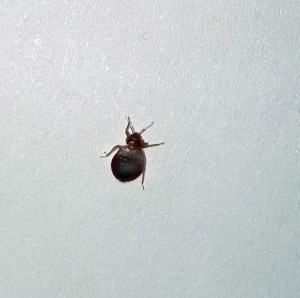Bed Bugs
Bed bugs are highly unpleasant, and everyone knows it. What many people don’t know is that bed bugs were virtually non-existent in most parts of America not too long ago. Michael Potter, an Extension Entomologist explained the reasons well: “Until fairly recently, most people (and even pest control professionals) had never seen a bed bug. Bed bug infestations actually used to be very common in the United States before World War II. But with improvements in hygiene, and especially the widespread use of DDT during the 1940s and ‘50s, the bed bugs all but vanished. The pests persisted, however, in some areas of the world including parts of Africa, Asia, and Eastern Europe. Over roughly the past decade, bed bugs have made a dramatic comeback in the U.S.―  they’re appearing increasingly in homes, apartments, hotels, health care facilities, dormitories, shelters, schools and public transportation. Other places where bed bugs sometimes occur include movie theaters, laundries, rental furniture, and office buildings. Immigration and international travel have contributed to the resurgence of bed bugs in the U.S. Changes in modern pest control practice, less effective insecticides ― and a decrease in societal vigilance ― are other factors suspected for the recurrence.”If you want to learn a little more about how bed bugs repopulate extremely quickly once they are present in your home, how they are considered a public health pest, and how they can each survive for almost a year, then read on.
they’re appearing increasingly in homes, apartments, hotels, health care facilities, dormitories, shelters, schools and public transportation. Other places where bed bugs sometimes occur include movie theaters, laundries, rental furniture, and office buildings. Immigration and international travel have contributed to the resurgence of bed bugs in the U.S. Changes in modern pest control practice, less effective insecticides ― and a decrease in societal vigilance ― are other factors suspected for the recurrence.”If you want to learn a little more about how bed bugs repopulate extremely quickly once they are present in your home, how they are considered a public health pest, and how they can each survive for almost a year, then read on.
Bed bugs are the size of small seeds, and are long, brown, and oval-shaped. They have a flat body if unfed, and are reddish-brown with a more swollen appearance if they have had a recent blood meal. Young bed bugs are smaller and white, making them almost invisible unless they have had a meal and are growing. Bed bugs will reproduce at an exceptionally high rate, with the females laying at least three to four eggs a day, potentially laying up to five hundred eggs over her lifetime. A single pregnant bed bug can produce an entire infestation in a matter of weeks. The general lifespan can produce an adult bed bug in as briefly as two months, with each phase of their life cycle up to that point lasting about a week. The adult bed bug can live for around 300 days with a good food supply, amply supplied by human donors or pets. Bed bugs are nocturnal, which directly correlates with the period of time most animals (and people) are sleeping, making their reproduction progress even more quickly. Bed bugs will leave stains left from fecal matter on mattresses, box springs, couches, and wherever else they gather in large groups to hide. Bed bug bites are painless, so the victim usually does not notice until itching results afterward. The bite takes about ten minutes for the bed bug to be fully engorged. If you fear that there are bed bugs in your home, then call us at Canton Termite and Pest Control today at 770-479-1598 to get an inspection. Early detection is crucial in preventing an infestation.
Bed bugs, according to the United States Environmental Protection Agency, are a public health issue:
“Bed bugs are a public health pest. While bed bugs have not been shown to transmit disease, they do cause a variety of negative physical health, mental health and economic consequences. Some of these effects include: Allergic reactions to their bites, which can be severe. Effects ranging from no reaction to a small bite mark to, in rare cases, anaphylaxis (severe, whole-body reaction). Secondary infections of the skin from the bite reaction, such as impetigo, ecthyma, and lymphangitis. Mental health impacts on people living in infested homes. Reported effects include anxiety, insomnia and systemic reactions.” This means that bed bugs will dramatically affect your lifestyle. The common bed bug can, however, carry over 20 human diseases, though they are not currently known to transmit these diseases. Bed bug bites usually cause itchy welts soon after a bite, irritating the skin and causing all of the issues mentioned above such as allergic reactions and other conditions. To avoid these problems with bed bugs, a professional inspection can be conduction by our technicians with Canton Termite and Pest Control. Call today at 770-479-1598 to get a free estimate!
As a closing note, the risk of coming into contact with bed bugs goes up dramatically with the increased use of hotels, motels, and other locations in the public that have a high rate of nighttime guest turnover. If your lifestyle or career puts you in this position, a bed bug inspection is recommended, so that your home can stay safe, and we at Canton Termite and Pest Control seek to accomplish just that for you. We provide service throughout zip codes of 30115, 30114, 30183, and 30107 and around these areas. Have a blessed day!
To find out more from the U.S. EPA on bed bugs, go to http://www2.epa.gov/bedbugs/bed-bugs-public-health-issue.
To learn more from Mr. Potter, Extension Entomologist, go to http://www2.ca.uky.edu/entomology/entfacts/ef636.asp.
By: Tim
